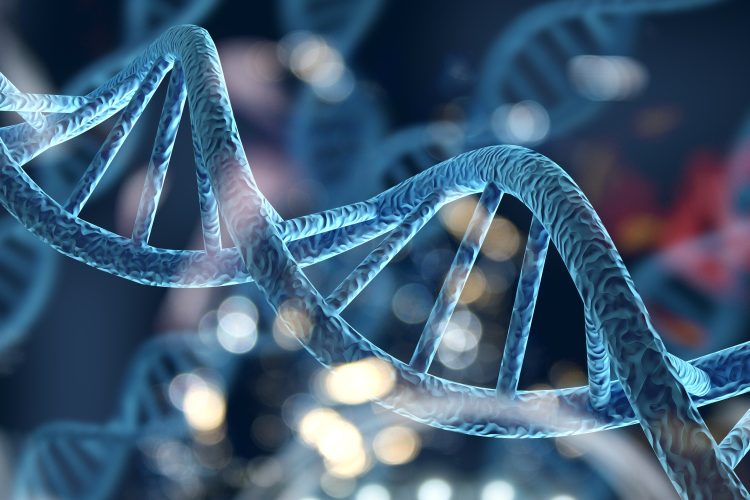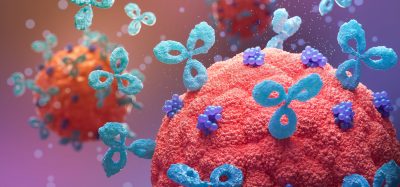Streamlining Biomanufacturing of Personalised Cancer Immunotherapies with Synthetic DNA
Posted: 13 October 2025 | | No comments yet
A Synthetic DNA Approach for Speed, Scale & Flexibility


The rise of personalised cancer immunotherapy represents a pivotal shift in oncology, aiming to harness the body’s own immune system to recognise and eliminate tumour-specific neoantigens. Encouraging results from early-phase clinical trials of mRNA-based therapies have demonstrated both safety and efficacy, drawing significant investment and accelerating innovation in the field. However, manufacturing hurdles remain to achieve the required 6-8 week needle-to-needle time and develop workflows that accommodate small, individualized batch manufacture.
This whitepaper explores how synthetic DNA technology offers the speed, flexibility, and purity demanded of personalized cancer immunotherapies. We examine how the integration of synthetic DNA with Neomatrix’s neoantigen discovery platform is driving the next evolution of cancer immunotherapy.
Access the full whitepaper here
One of the challenges for PCV development is the need for fast, high-quality production of DNA or mRNA encoding neoantigens. Conventional plasmid DNA (pDNA) is poorly suited to the speed, scale, and agility required for personalised therapies.
The Challenge of Plasmid DNA Manufacturing
- Long lead times: pDNA production relies on bacterial fermentation and sequential steps (master/working cell banks, culturing), often requiring 9–12 months.
- Batch size inflexibility: Traditional bioreactor workflows mandate large minimum batch sizes—even when only milligrams of material are required per patient.
- Process inefficiencies: Small batch, high-throughput manufacturing is difficult to implement with conventional platforms, limiting scalability for personalised protocols.
The Synthetic DNA Solution: 4basebio’s Platform
4basebio has developed an enzymatic, cell-free DNA manufacturing platform tailored for personalised immunotherapies. Key features include:
- Linear double-stranded DNA free of bacterial sequences: only the therapeutic sequence remains, enhancing safety and regulatory compliance.
- Rapid production: The process enables GMP-grade DNA production in a matter of weeks rather than months, aligning with tight timelines between biopsy and therapy.
- Scale-out capability: The small footprint and modular nature allow many parallel small-batch operations to meet patient-specific demands.
- Optimised templates for IVT mRNA: The opDNA® construct has an open 3′ end eliminating the need for enzymatic linearisation.
- PolyA tail Stability: opDNA® allows for encoding the polyA sequence directly into the DNA template, simplifying downstream processes.
- High-fidelity of amplification via Trueprime®: This primer-free enzymatic amplification achieves an error rate of ~3.75 × 10⁻⁹, which is approximately ~200,000× better than PCR
Validating the Approach: Case Study with Neomatrix
To demonstrate the clinical potential of their synthetic DNA platform, 4basebio collaborated with Neomatrix a leader in neoantigen identification, vaccine design, and immuno-oncology delivery platforms. Neomatrix designed a vaccine encoding 20 unique neoantigens. 4basebio manufactured the corresponding opDNA® templates, including a fully encoded 120 bp polyA tail, eliminating the need for enzymatic tailing downstream. Capillary electrophoresis revealed that opDNA®-derived mRNA was of greater integrity (88.1%) compared to plasmid-derived mRNA (82.7%), validating 4basebio’s template to produce high-integrity mRNA.
In pre-clinical studies, vaccinated animals developed strong neoantigen-specific CD8+ T-cell responses, producing key immune markers like IFNγ, TNFα, and IL-2. Then, mice were challenged with MC38 cells, where 6 out of 7 treated mice remained tumor-free, highlighting the vaccine’s protective efficacy. In a therapeutic model, where treatment began after tumor challenge, the opDNA®/Hermes® 4basebio’s LNP platform, matched the performance of leading mRNA-LNP platforms, significantly delaying tumor progression.
Why This Matters for the Future of Cancer Care
Personalized cancer vaccines require speed, flexibility, and accuracy, something pDNA manufacturing can’t offer. 4basebio’s synthetic DNA approach solves this bottleneck.
By reducing production timelines from months to weeks, opDNA® enables vaccine developers to meet critical 6–8 week windows from biopsy to treatment. It allows production of small, patient-specific batches without the overhead of large-scale bioreactor systems. High-fidelity amplification ensures precise DNA templates, even for complex sequences like polyA tails, supporting better mRNA integrity.
Most importantly, the technology is already showing immense promise. With proven performance in pre-clinical models, this platform is ready to support the next generation of individualised immunotherapies.
Related topics
Cell Therapy, Gene Therapy, Personalised Medicine
Related organisations
4basebio plc








